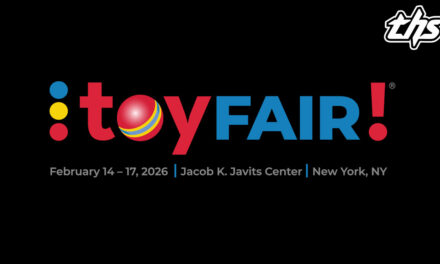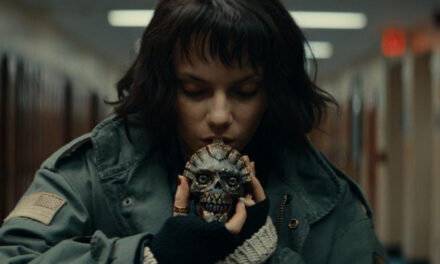After the death of the sitting Pope, Cardinal Lawrence (Ralph Fiennes) is forced to put aside his own internal struggles to put together a conclave and choose a successor. If HBO’s Succession was set in the Vatican, you would get Conclave.
Lawrence and a group of cardinals seclude themselves away to choose the new Pope. It’s a tradition shrouded in secrecy but plays out on screen like the American election, including all the prejudice and backstabbing. The main players are the liberal American Bellini (Stanley Tucci), who believes in gay marriage and wants more women included in the church, the bigoted but popular Nigerian Adeyemi (Lucian Msamati), the traditional and narrow-minded Tedesco (Sergio Castellitto) and the controversial American Tremblay (John Lithgow).

The plan goes array when a mysterious contender called Benitez (Carlos Diehz) arrives. Lawrence is on a mission to encode who this newbie is but discovers the Mexican is working in Kabul on a secret mission. As the unwilling dean of the process, Lawrence becomes a religious detective, piecing together the clues to ensure the right person is chosen for the holy role. As the story unfolds, Lawrence discovers more and more secrets about the men around him. Narratively, it’s closer to a murder mystery than a papal drama, as he picks at the loose threads of cardinals from around the world.
Despite the subject matter, Conclave is immensely funny. Using humor to elevate a dry ceremony, Fiennes and Tucci are quick-witted as cardinals with more modern outlooks on religion. Castellitto’s exaggerated facial expressions say a thousand words as he judges the non-Italians. The writer knows when to authentically input humor without losing the tone.
Conclave isn’t afraid to touch on difficult topics. LBGTQ, women’s place in religion, and the merits of a black pope are all discussed. The film is hugely concerned with whether an ancient religion could ever truly be modernized. Writer Peter Straughan (Tinker Tailor Soldier Spy) acknowledges the scandals associated with the church and how it must evolve without ever feeling preachy.
As the power plays grow meaner and more intense between the men, a nun, played by a severely underused Isabella Rossellini, appears from the shadows to challenge the male hierarchy of the Catholic Church. The nuns stand in the corner, acting as cooks, cleaners, and waitresses, silently perceiving the events unfolding in front of them.

Fiennes gives an outstanding performance as a man beginning to have doubts about his faith and those who made vows with the Catholic Church. It’s an understated performance that does so much with so little. He handles the comedy, the more zany elements and the serious dialogue with the same calmness. It’s no surprise he has been frequently included in the awards conversation. Stanley Tucci brings his laid-back charm to Bellini, a man unsure about his place in religion due to his modern opinions on sexuality and gender. Carlos Diehz, in his first full-length role, is a revelation as the soft and gentle Benitez.
Edward Berger (All Quiet On The Western Front) directs Conclave like a classic thriller, with disorienting jump cuts, wide shots, and a tense score by Volker Bertelmann. The movie looks stunning, with the Vatican recreated at Cinecitta Studios and brought to life by cinematographer Stephane Fontaine. It never feels like a set as Lawrence meanders the grounds, where turtles roam free and cardinals chain-smoke.
Based on the 2016 Robert Harris novel, Conclave is unashamedly a crowd-pleaser. It appeals to those who love the pomp, meticulously recreating the Sistine Chapel and the process of choosing a new pope. But it will also appeal to those who want to see cardinals acting as petty as teenage girls during one of the most pious times in the world.
This film loves a twist, perhaps a little bit too much. If audiences think they have a grip on where the story is going, it will twist and turn again. The final act takes it a twist too far, taking a pulpy papal thriller and turning it into a piece of high camp. Occasionally, Conclave relies on flashy tricks rather than addressing the narrative details. The actual conclave process is frequently pushed aside in favour of the battle between traditionalism and liberalism because the film understands how to keep the audience’s attention.
For more Reviews, make sure to check back to That Hashtag Show.

![‘Conclave’ – Ralph Fiennes Papal Thriller Is A Twisty Crowd Pleaser [Review]](https://www.thathashtagshow.com/wp-content/uploads/2024/10/2372db05-e199-4713-aba6-274832ad90ce-1280x640.jpg)

![Fire Up The Bat Signal – A New Trailer For ‘The Batman’ Arrives Saturday [Teaser]](https://www.thathashtagshow.com/wp-content/uploads/2020/04/The-Batman-Robert-Pattinson.png)

